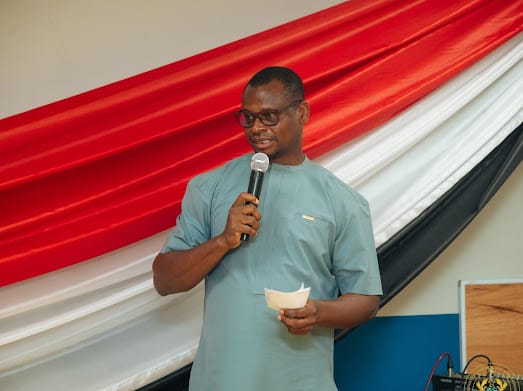Did you know? Ghana is currently facing a significant health crisis driven by lifestyle-related diseases. Non-communicable diseases (NCDs) such as hypertension, diabetes, and heart disease now account for nearly 45% of all deaths in the country (WHO, 2022).
Compounding this challenge are over 50,000 drug abuse cases, with about 35,000 involving young people aged 12-35.
Sedentary lifestyles and the lack of safe, inclusive recreational spaces are major contributors to these issues.
Shockingly, only 20% of Ghanaian adults meet the World Health Organisation’s recommended physical activity levels, and less than 15% of school children engage in regular structured exercise.
These trends threaten not just the health of individuals but also the socio-economic stability of the nation. Lifestyle diseases are silently draining the national health budget and cutting short the lives of Ghana’s most productive citizens.
The rise in NCDs presents a dual health and economic crisis, but it also offers an opportunity for transformation.
Recreation: More Than Just Fun
Recreation is often seen as leisure, but its benefits extend far beyond entertainment. It is a vital tool for preventive health, youth empowerment, rehabilitation, wellness, and nation-building.
Just 30 minutes of daily moderate to vigorous physical activity (MVPA) can reduce the risk of NCDs by 40%.
Moreover, children involved in school sports are 50% more likely to excel academically and avoid risky behaviours (UNICEF, 2021). On a community level, recreation fosters social bonds, reduces crime, and promotes peace and inclusion.
The Government’s Response: Introducing NARWEP
In response to these pressing challenges, the Ministry of Sports and Recreation, under the leadership of Hon. Kofi Iddie Adams, is launching the National Recreation and Wellness Programme (NARWEP).
This innovative initiative aims to embed recreation and wellness into the fabric of everyday Ghanaian life by making physical activity and wellness part of daily routines, strengthening school sports as platforms for fitness, talent discovery, and essential life skills and using community-based recreation to promote peace, inclusion, and cultural pride.
Aligning with President John Dramani Mahama’s vision of placing recreation at the heart of national development, NARWEP complements ongoing efforts in health, education, and social cohesion. It is designed to build a healthier, stronger, and more productive Ghana.
Why recreation and wellness are critical
Ghana loses billions of cedis annually to the treatment of lifestyle-related diseases. The economic burden of NCDs is staggering, and inactivity is a silent epidemic.
Less than one in five adults and one in seven children meet recommended activity levels, making this a national issue with wide-ranging implications.
NARWEP is more than a sports initiative; it is a strategic social investment that benefits multiple sectors by reducing non-communicable disease prevalence and promoting preventive health in health, enhancing academic performance and student engagement in education, providing pathways for talent, skills, and employment in youth development, and cultivating a healthier nation as part of national development.
Seizing the Opportunity
Investing in recreation is cost-effective every dollar spent on active lifestyle promotion can save three dollars in future healthcare costs (WHO, 2019).
Recreational activities also contribute to safer communities by reducing crime and substance abuse, while fostering inclusivity for women, persons with disabilities, and the elderly.
Focus Areas of NARWEP
NARWEP is built around four interconnected pillars: active recreation, which promotes community participation through wellness walks, aerobics, indigenous games, and informal play, leading to improved cardiovascular health, mental well-being, and stronger community bonds; wellness, which includes health screenings, nutrition education, and inclusive, therapeutic recreational activities that restore dignity, promote recovery, and foster social inclusion.
School recreation, which strengthens physical education, inter-school competitions, and recreational festivals will be targeted to develop discipline, teamwork and leadership
The success of NARWEP depends on stakeholder engagement, which involves citizens embracing active lifestyles, schools prioritizing recreation and sports, businesses and corporate entities supporting through sponsorships and wellness programs, development partners and civil society working to expand reach, and traditional and religious leaders mobilizing communities.
A Call to Action
Recreation and wellness are investments in Ghana’s future, not luxuries. By supporting NARWEP, we are choosing prevention over cure, inclusion over exclusion, and health over illness. Together, we can make Ghana a nation that moves, plays, and thrives.
Let us walk, play, and build a healthier Ghana. The time to act is now.
Source: Bagbara Tanko


